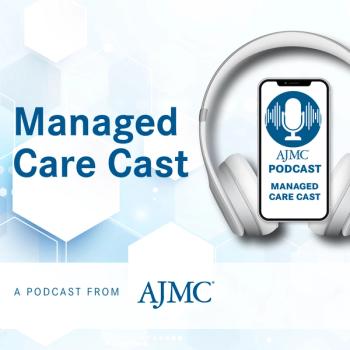
Technology
Latest News
Video Series

Latest Videos
Shorts
Podcasts
More News

Standard double reading did not perform as well as artificial intelligence for looking at catching cancer and reduced the rate of breast cancer diagnosis by 12%.

Better integration of pharma and medical technology is necessary to enhance patient outcomes and drive value-based care.

LLMs provide valuable answers to common Mohs surgery questions, supporting postoperative care and patient education without replacing physician guidance.

A letter from the guest editor introduces this year’s Health Information Technology issue, which explores 4 key themes driving health care’s digital transformation from basic automation to human-centered integration.

A Michigan-based deliberative study found strong public support for patient-informed artificial intelligence (AI) labeling in health care, emphasizing transparency, privacy, equity, and safety to build trust.

Nearly two-thirds of hospitals using Epic have adopted ambient artificial intelligence (AI), with higher uptake among larger, not-for-profit hospitals and those with higher workload and stronger financial performance.

Skilled nursing facilities (SNFs) with a high volume of referred patients with Alzheimer disease and related dementias may work harder to manage care transitions with less availability of resources that enable high-quality handoffs.

Operators demonstrated specialty-specific differences in electronic health record efficiency, timeliness, and after-hours use, highlighting how workflow and training shape documentation behaviors across medical disciplines.

The new Horizon1000 partnership aims to deploy AI tools across 1000 clinics to boost care, support health workers, and address aid cuts in African health systems by 2028.

Chronic gastrointestinal disorders are common and costly for employers. Use of a digital digestive care program was associated with reduced health care spending.

As clinical trial activity accelerates and trial designs grow more complex, new data highlight persistent challenges with feasibility, enrollment, and early termination.

Poland’s LiBRha project will expand liquid biopsy and molecular testing nationwide to improve diagnosis, monitoring, and outcomes for children with soft tissue sarcoma.

Empowering Children and Parents Through Technology: Opportunities, Challenges, and Future Directions
Digital health platforms improve pediatric care by offering customized, interactive tools for children and parents. They enhance education, support, and engagement while tackling challenges related to access, usability, and privacy.

Recent findings support the use of EHRs not only for individual patient care but also for family-centered interventions to curb the growing diabetes epidemic.

Last week, OpenAI launched AI tools for health care organizations, including ChatGPT for Healthcare, designed to improve care and streamline administrative tasks.
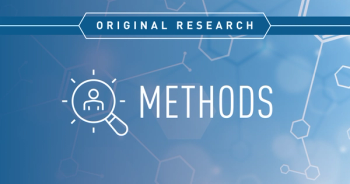
This analysis of more than 250,000 adults at least 50 years old with chronic conditions showed lower portal use among older, non–English-speaking, and Black patients, underscoring digital health equity gaps.

W. Kimryn Rathmell, MD, PhD, FASCO, champions the dyad model to enhance oncology care accessibility, bridging gaps between rural patients and clinical trials.

EHR penicillin allergy flags do not often match allergist assessments, highlighting the need for improved evaluation processes.

Although the vast majority of physicians using an artificial intelligence (AI) scribe perceived a reduction in documentation time, those with the most actual time savings had higher relative baseline levels of documentation time.

Telehealth Intervention by Pharmacists Collaboratively Enhances Hypertension Management and Outcomes
Patient interaction and enhanced support with clinical pharmacists significantly improved pass rates for a measure of controlling blood pressure compared with usual care.

Food insecurity is associated with a lower rate of annual visits but a higher share of telehealth visits for primary and preventive care.

Telemedicine use in rural areas was associated with a higher likelihood of utilizing preventive services.
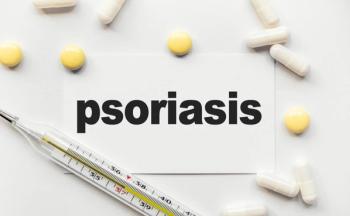
A validated XGBoost model identifies psoriasis patients at high hyperglycemia risk, supporting personalized care through a user-friendly web calculator.
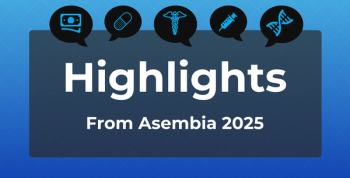
AI revolutionizes pharmacy by automating workloads, enhancing patient care, and navigating drug pricing challenges amid evolving federal policies.
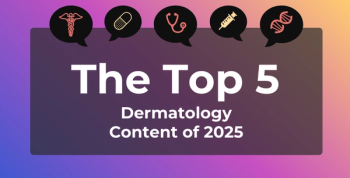
Our top dermatology content of 2025 highlights AI wearables, new biologics, emerging vitiligo treatments, and strategies for rare and complex skin diseases.

























